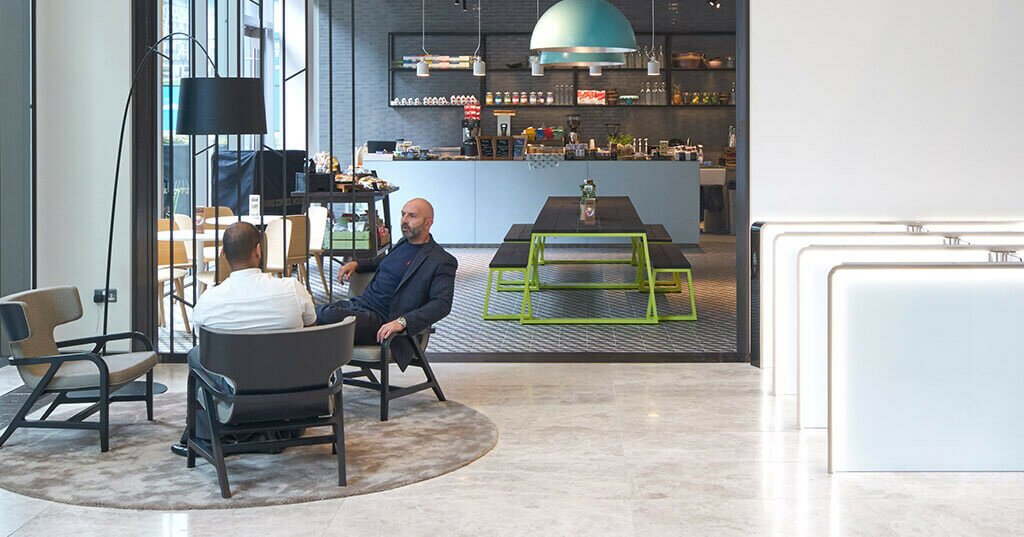Peter Ferrari, Chief Executive of real estate investment advisor, AshbyCapital, observes how traditional office spaces have had to up their game to compete against the co-working trend.
Co-working spaces were said to be the death knell for the traditional office, where cubicle partitions separate colleagues, the boss sits alone in a glass-walled box and social interaction is limited to an awkward conversation about the weather around the coffee machine or water cooler. Pitched against an offering tailored to millennials including a strong focus on design, amenities, flexibility, connectivity, third places and wellness at work, the traditional office might look like an outdated option.
The requirements of occupiers have changed over the past few years, influenced by changing attitudes, a greater emphasis on networking and the increased flexibility offered by technology. With an increasingly hard-fought war for talent across a number of sectors and absenteeism costing UK employers around £29 billion each year according to research from PwC, attractive amenities that encourage health and wellbeing have also shot to the top of occupiers’ wish lists. Small businesses in particular – and especially those with a focus on technology or media – have seen co-working spaces as a way to get the office culture that would normally be the preserve of a much bigger organisation. Understandably, medium-sized businesses with space in multi-let buildings now want a piece of the action too.
Previously concerned more with sustainability, space planning and fit-out, developers are latching on to the fact that businesses’ main priorities are their employees. In a competitive market where securing and retaining the very best staff is high on the agenda, health, happiness and wellbeing are important. Forward-thinking businesses recognise that the world of work is changing and providing the best possible package for staff can be beneficial for both employer and employee.
We recently relaunched The Colmore Building, in Birmingham’s Colmore Business District, which has the widest offering of amenities of any office building in the city. Throughout the process of redeveloping the building, the wellness of our future occupiers was front of mind. The provision of over 100 cycle spaces and inclusion of changing facilities, including luxury showers, lockers, a drying room and even a dry-cleaning service, means employees can cycle to work, promoting healthy and sustainable transport. Workers also have the option to exercise before or after work or during their lunch break at the on-site gym, which is open 24/7.
Treatment rooms provide services including massages, manicures and hair styling – which can also be gifted to employees as a reward for exceptional work – and the in-house café, run by Genuine Dining, offers healthy lunch options, coffees and juices, as well as a selection of wines and spirits for post-work drinks. As well as being a great place to grab something to eat or drink on the go, it also offers a perfect meeting place to network with other tenants in the building or take meetings and catch-ups away from the office floor.
Keeping up with the latest technological innovations is also high on the priorities list. Slow connectivity can cause stress and frustration for employees. The Colmore Building has become the first building in Birmingham to be Wired Certified under the international digital connectivity rating scheme run by WiredScore. The building’s Platinum rating – the highest available – puts its technology infrastructure as amongst the best in the UK.
Similar facilities at our 200 Aldersgate building in Farringdon have enabled us to bring together more than 27 tenants, creating a vibrant community feel that has helped us achieve rents of over £80 per sq ft.
As occupiers’ priorities change and the co-working revolution opens businesses’ eyes to a new way of working, developers creating multi-let buildings need to ensure that what they are offering is what the market wants. With employees demanding more flexibility and working longer hours than ever before, a great office environment, exceptional connectivity and a comprehensive offering of facilities that promote health, wellbeing and interaction have never been more important.
